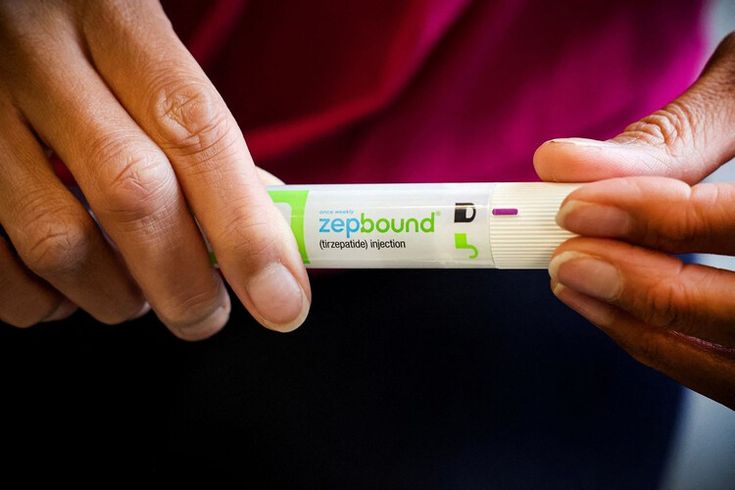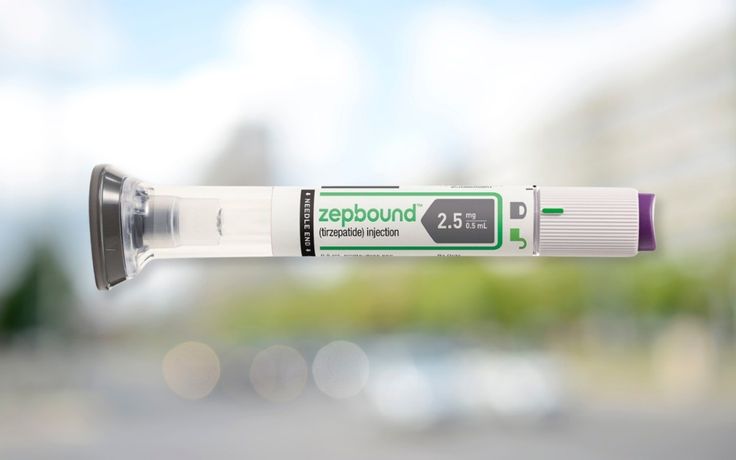Obesity and its associated health risks have become a growing concern worldwide. With rising obesity rates, the need for effective weight management solutions has never been more critical. One of the latest advancements in weight loss medication is Zepbund, an injectable drug that has gained significant attention for its ability to aid in weight reduction. This article delves deep into what Zepbound is, how it works, its benefits, side effects, and frequently asked questions.
What is Zepbund?

Zepbund is a prescription medication designed to help individuals with obesity or weight-related conditions manage their weight effectively. It is administered as a once-weekly injection and is used in conjunction with a reduced-calorie diet and increased physical activity. Zepbound is primarily recommended for individuals with:
- A Body Mass Index (BMI) of 30 kg/m² or higher (classified as obesity)
- A BMI of 27 kg/m² or higher with at least one weight-related comorbidity, such as type 2 diabetes, high blood pressure, cardiovascular disease, or obstructive sleep apnea
Zepbound is not a standalone solution but a part of a comprehensive weight management program that includes lifestyle modifications.
How Does Zepbund Work?

Zepbound contains tirzepatide, a compound that mimics two naturally occurring hormones: glucagon-like peptide-1 (GLP-1) receptor agonist and glucose-dependent insulinotropic polypeptide (GIP) receptor agonist. These hormones play a key role in regulating appetite, metabolism, and insulin levels.
The mechanism of action involves:
- Appetite Suppression: Zepund helps reduce hunger and increase feelings of fullness, leading to a lower calorie intake.
- Slowing Gastric Emptying: This prolongs the feeling of satiety and prevents overeating.
- Improving Insulin Sensitivity: It enhances the body’s response to insulin, which is especially beneficial for individuals with type 2 diabetes.
- Regulating Blood Sugar Levels: It lowers blood glucose, reducing the risk of hyperglycemia in overweight individuals.
Benefits of Zepbund
1. Effective Weight Loss
Clinical studies have shown that individuals using Zepbund experience significant weight loss over time. Many users lose 10-20% of their body weight, depending on adherence to diet and exercise recommendations.
2. Improved Metabolic Health
Zepbound positively impacts metabolism by improving insulin sensitivity, reducing blood sugar levels, and lowering bad cholesterol (LDL). This is particularly beneficial for individuals with metabolic disorders such as type 2 diabetes and metabolic syndrome.
3. Reduction in Cardiovascular Risks
By promoting weight loss and improving metabolic markers, Zepbound helps lower the risk of heart disease, hypertension, and stroke.
4. Supports Long-Term Weight Management
Unlike many weight loss medications that offer short-term benefits, Zepbound provides sustainable results when combined with a healthy diet and physical activity.
5. Potential Benefits for Obstructive Sleep Apnea (OSA)
Weight loss plays a crucial role in managing obstructive sleep apnea (OSA), and Zepbound has shown potential in reducing the severity of OSA symptoms in obese individuals.
Dosage and Administration
Recommended Dosage
Zepbound is administered as a once-weekly subcutaneous injection. The dosing schedule is as follows:
- Week 1-4: 2.5 mg once weekly
- Week 5-8: Increase to 5 mg once weekly
- Week 9-12: Increase to 7.5 mg once weekly (if needed)
- Week 13+: The dose may be increased up to a maximum of 15 mg once weekly, based on patient response and tolerance.
How to Use Zepbund
- Inject subcutaneously (under the skin) in the abdomen, thigh, or upper arm.
- Rotate injection sites with each dose to prevent irritation.
- Do not administer two doses within a 3-day period if a dose is missed.
- Store in the refrigerator but allow it to reach room temperature before injecting.
Side Effects of Zepbund
Common Side Effects
Most side effects of Zepbound are mild and improve as the body adjusts to the medication. These include:
- Nausea and vomiting
- Diarrhea or constipation
- Indigestion and bloating
- Loss of appetite
- Fatigue
Serious Side Effects (Rare)
- Pancreatitis (severe abdominal pain, nausea, vomiting)
- Gallbladder issues (pain, jaundice, fever)
- Kidney problems (increased thirst, dark urine, swelling in the legs)
- Severe allergic reactions (swelling, rash, difficulty breathing)
- Low blood sugar (hypoglycemia), especially when used with diabetes medication
Patients should seek immediate medical attention if they experience severe side effects.
Frequently Asked Questions (FAQs)
1. How long does it take for Zepbund to show results?
Most patients start noticing weight loss within 4-8 weeks of consistent use. However, significant results are usually seen after 3-6 months.
2. Can I take Zepbund if I have diabetes?
Yes, Zepbound helps improve insulin sensitivity and blood sugar regulation. However, if you are already on diabetes medication, consult your doctor to adjust your dosage to prevent hypoglycemia.
3. Is Zepbund safe for long-term use?
Zepbound has been tested in long-term clinical trials and has shown sustained weight loss benefits. However, long-term safety is still being monitored.
4. Can I stop taking Zepbund once I reach my goal weight?
Stopping Zepbound without proper medical advice may lead to weight regain. It is best to discuss a discontinuation plan with your doctor.
5. Is Zepbund better than other weight loss drugs like Wegovy or Ozempic?
Zepbound works differently as it targets both GLP-1 and GIP receptors, whereas drugs like Wegovy and Ozempic only target GLP-1. Clinical trials suggest Zepbound may be more effective for weight loss, but individual responses vary.
6. Can I use Zepbound if I am pregnant or breastfeeding?
Zepbound is not recommended during pregnancy or breastfeeding, as its effects on fetal development are unknown.
7. Does insurance cover Zepbund?
Insurance coverage for Zepbound varies. Some policies cover it for obesity treatment, while others do not. Check with your provider.
8. What lifestyle changes should I make while on Zepbund?
For the best results, combine Zepbund with:
- A healthy, balanced diet rich in whole foods
- Regular physical activity (at least 150 minutes per week)
- Adequate hydration and sleep
Conclusion
Zepbund is a promising option for individuals struggling with obesity and related conditions. By suppressing appetite, improving metabolism, and supporting weight loss, it can significantly improve quality of life. However, it should be used under medical supervision and accompanied by lifestyle changes for long-term success. Always consult a healthcare professional before starting Zepbund to ensure it is the right choice for you.










